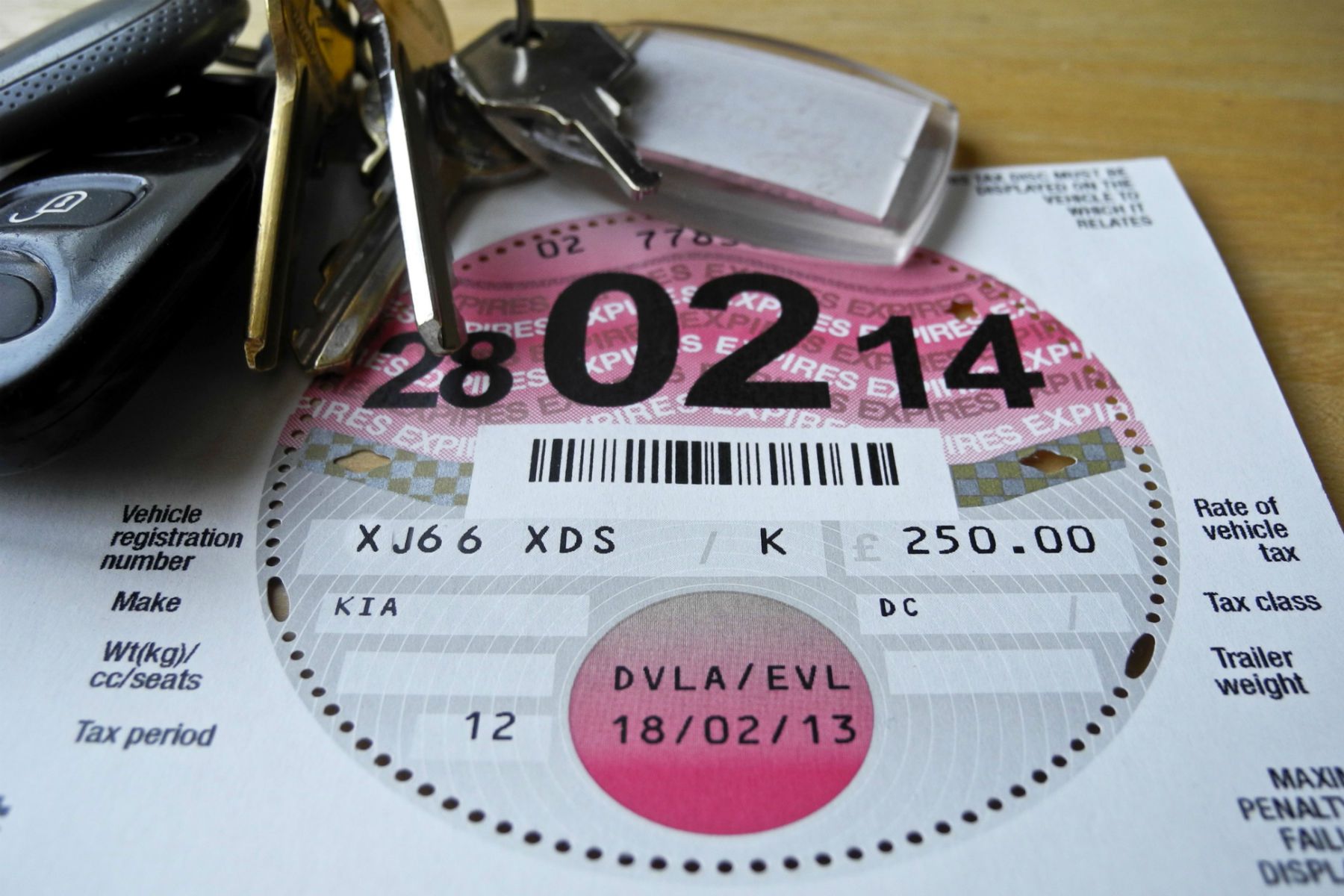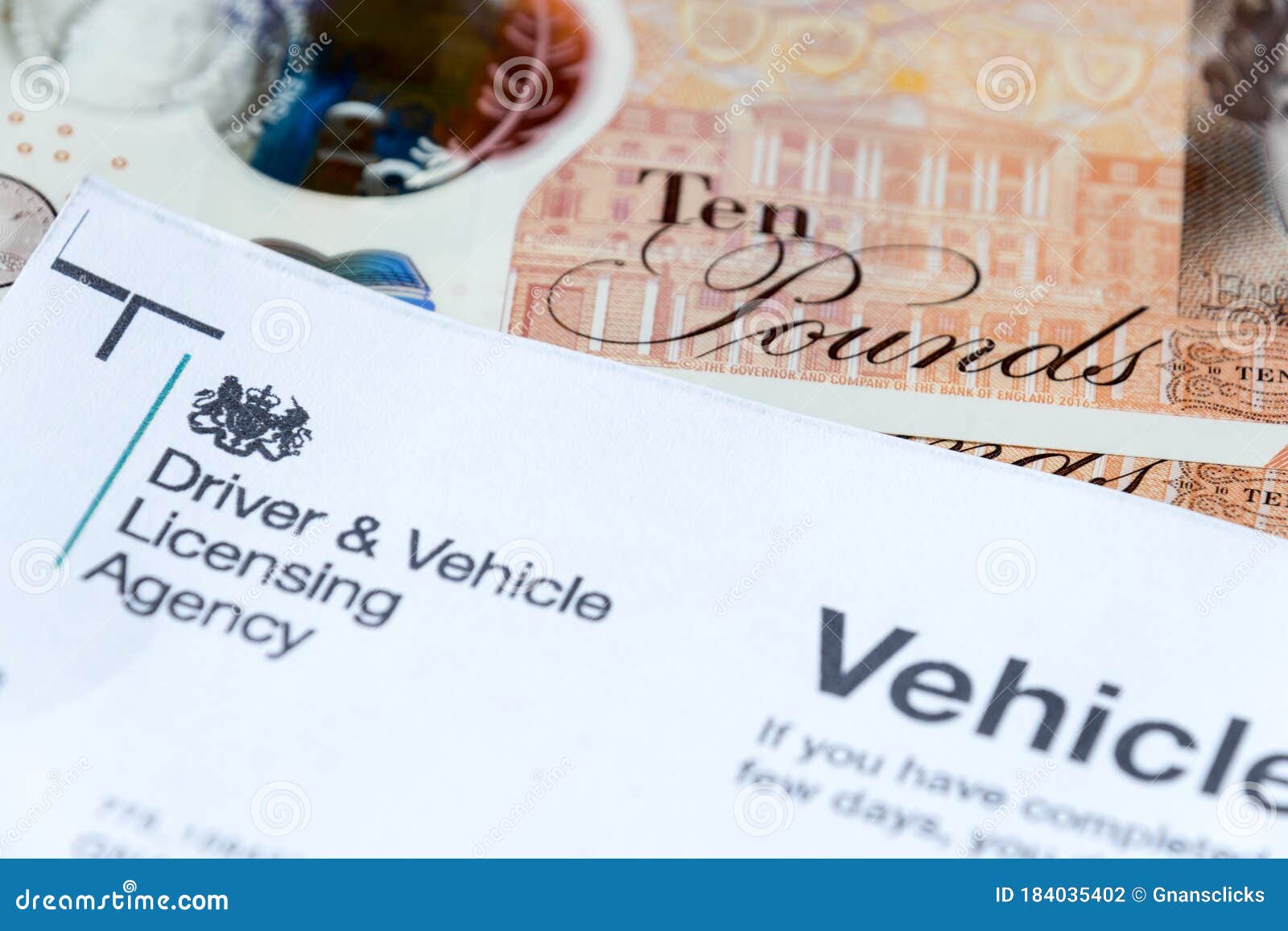Ultimate Guide To Understanding DVLA Vehicle Tax the complete guide for everything you need to know about vehicle tax in the UK.
Editor's Notes: Ultimate Guide To Understanding DVLA Vehicle Tax has published today date. This comprehensive guide provides an overview of the different types of vehicle tax, how to pay it, and what the penalties are for not paying it.
We've done some analysis, digging information, and made Ultimate Guide To Understanding DVLA Vehicle Tax we put together this Ultimate Guide To Understanding DVLA Vehicle Tax guide to help target audience make the right decision.
Key differences or Key takeways:
Transition to main article topics:
FAQ
This FAQ section provides comprehensive answers to commonly asked questions concerning DVLA vehicle tax, ensuring a clear understanding of the subject matter.

DVLA Vehicle Tax Reminder Form for Vehicle Excise Duty Editorial Image - Source www.dreamstime.com
Question 1: When is vehicle tax due?
Vehicle tax is typically due annually on the same date each year. The date is determined by the first letter of the vehicle's registration number. For example, vehicles with registration numbers starting with "A" are due on March 1st.
Question 2: Can I pay my vehicle tax in installments?
Yes, it is possible to pay vehicle tax in monthly installments over a period of 6 or 12 months. However, an additional fee applies to this option.
Question 3: What happens if I don't pay my vehicle tax?
Failure to pay vehicle tax can result in penalties, including fines and potential vehicle seizure. It is crucial to ensure timely payment to avoid legal implications.
Question 4: Are there any exemptions from vehicle tax?
Certain vehicles are exempt from vehicle tax, such as those registered as disabled, electric vehicles, and agricultural vehicles. The DVLA website provides a comprehensive list of exemptions.
Question 5: Can I get a refund if I sell my vehicle?
Yes, if a vehicle is sold, the remaining tax can be refunded. The refund is calculated based on the number of months remaining on the tax disc.
Question 6: How can I check the status of my vehicle tax?
The DVLA provides an online service where one can check the status of their vehicle tax using the vehicle's registration number. Additionally, the tax disc on the vehicle serves as proof of payment.
In summary, understanding the DVLA vehicle tax is essential for responsible vehicle ownership. Timely payment, awareness of exemptions, and proper documentation are crucial to avoid penalties and maintain legal compliance.
For further information and inquiries, consult the official DVLA website.
Tips
To fully comprehend the complexities of DVLA vehicle tax, consider these essential tips:
Tip 1: Punctual Payment: Adhere to tax renewal deadlines to avoid penalties. Timely payments ensure continuous vehicle usage and prevent additional charges.
Tip 2: Tax Disc Display: Prominently display the tax disc on your vehicle's windscreen. Failure to do so may result in fines or vehicle seizure.
Tip 3: Mileage-Based Charging: Diesel vehicles registered after April 2018 are subject to a mileage-based tax system. Ensure accurate mileage recording and timely declarations to avoid overpayments.
Tip 4: Tax Exemptions: Certain vehicles, such as those used by the disabled or as part of public services, may qualify for tax exemptions. Thoroughly research eligibility criteria to maximize savings.
Tip 5: Vehicle Alterations: Modifications that affect vehicle emissions or weight may impact tax liability. Consult with the DVLA before making significant alterations to avoid potential tax increases.
Tip 6: Tax Refunds: If you sell or scrap your vehicle before the tax expires, you are entitled to a refund for the unused portion. Apply promptly to receive your due reimbursement.
Tip 7: Penalties and Enforcement: Unpaid or late tax payments can lead to penalties, fines, and even vehicle seizure. Stay informed about tax regulations and payment options to avoid costly consequences.
Tip 8: Online Resources: Utilize the DVLA's online services for convenient tax payments, reminders, and vehicle registration management. These tools simplify the process and reduce the risk of errors.
By incorporating these tips into your vehicle ownership strategy, you can ensure proper tax compliance, optimize savings, and maintain a seamless driving experience. Ultimate Guide To Understanding DVLA Vehicle Tax
Remember, staying informed and adhering to tax regulations is crucial. The DVLA website and other reputable sources provide comprehensive information to help you navigate the complexities of vehicle tax.

DVLA loses £93 million after paper tax disc scrapped | Motoring Research - Source www.motoringresearch.com
Ultimate Guide To Understanding DVLA Vehicle Tax
Understanding DVLA vehicle tax is essential for ensuring compliance with legal obligations and avoiding penalties. This guide explores six key aspects to provide a comprehensive overview of the topic.
- Tax Rates and Categories
- Exemptions and Discounts
- Payment Methods and Deadlines
- Penalties for Non-Compliance
- Data Sharing and Fraud Prevention
- Online Services and Support

DVLA | Official Website - Source www.dvla.gov.gh
These aspects encompass various dimensions of DVLA vehicle tax, from determining applicable rates to understanding payment options and consequences of non-compliance. They also highlight the importance of data management and fraud prevention, as well as the availability of online resources for convenience and support. Understanding these aspects empowers individuals to navigate the complexities of vehicle taxation, ensuring both legal compliance and financial responsibility.
Ultimate Guide To Understanding DVLA Vehicle Tax
The "Ultimate Guide To Understanding DVLA Vehicle Tax" provides a comprehensive understanding of the legal and financial obligations associated with vehicle ownership in the United Kingdom. It explores the various types of vehicle tax, their calculation, exemptions, and the consequences of non-compliance. By thoroughly examining this topic, the guide empowers individuals to make informed decisions regarding their vehicle taxation responsibilities.

DVLA Vehicle Tax Reminder Form for Vehicle Excise Duty Editorial - Source www.dreamstime.com
Understanding DVLA vehicle tax is crucial for ensuring compliance with the law and avoiding penalties. It also enables individuals to budget effectively for their vehicle-related expenses. Moreover, staying up-to-date with the latest regulations helps drivers avoid common pitfalls and ensures they benefit from any available exemptions or concessions.
The guide presents a detailed analysis of the different types of vehicle tax, such as vehicle excise duty (VED), first-year vehicle tax, and disabled vehicle tax. It explains the factors that determine the amount of tax due, including vehicle age, fuel type, and emissions. Additionally, the guide provides clear instructions on how to calculate the tax owed, ensuring accuracy and reducing the risk of overpayments.
Exemptions and concessions play a significant role in the DVLA vehicle tax system. The guide outlines the eligibility criteria for various exemptions, such as those for vehicles used by disabled individuals or for specific purposes like agriculture or public service. Understanding these exemptions helps individuals optimize their tax obligations and avoid unnecessary payments.
Non-compliance with vehicle tax regulations can result in substantial penalties and legal consequences. The guide highlights the importance of timely tax payments and explores the potential repercussions of late or unpaid taxes. It emphasizes the need for responsible vehicle ownership and encourages individuals to take proactive measures to fulfill their taxation duties.
The "Ultimate Guide To Understanding DVLA Vehicle Tax" serves as an invaluable resource for individuals seeking to navigate the complexities of vehicle taxation in the United Kingdom. Its comprehensive coverage, clear explanations, and practical guidance empower readers to make informed decisions, ensure compliance, and avoid potential pitfalls.